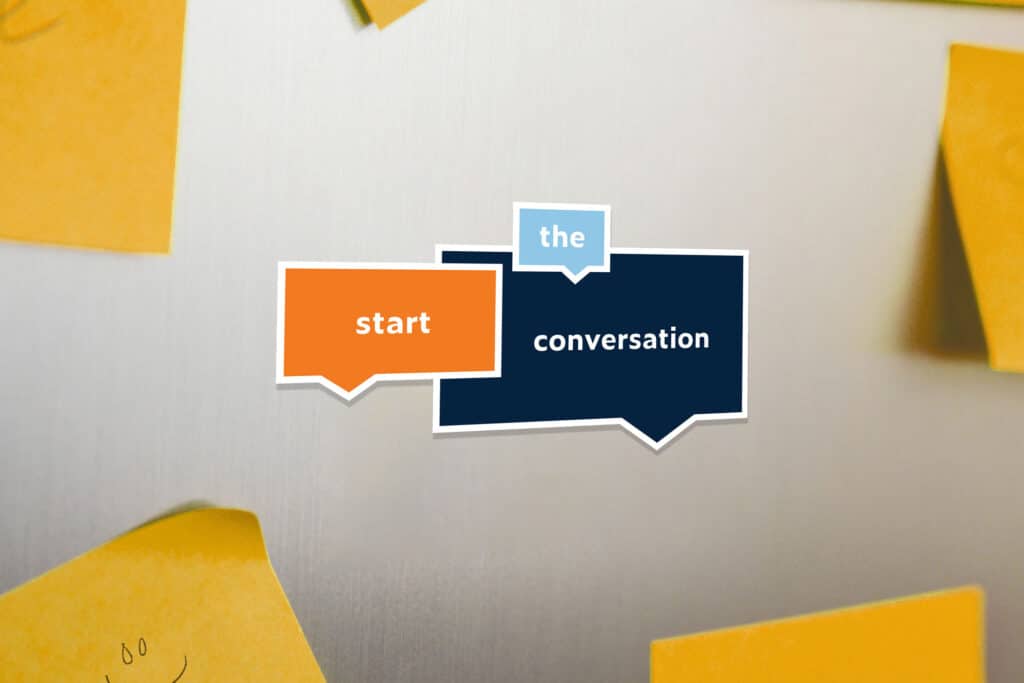Jason Maciejewski: (00:00)
Welcome to Inside The Senior Alliance, a podcast exploring resources and issues in the field of aging. I’m Jason Maciejewski, the CEO at The Senior Alliance, the Area Agency on Aging serving Western and Southern Wayne County. Joining me today is Dr. Peter Lichtenberg from Wayne State University in the Institute of Gerontology. Dr. Lichtenberg, welcome to the podcast.
Dr. Peter Lichtenberg: (00:19)
I’m delighted to be here. Thanks for having me, Jason.
Jason Maciejewski: (00:21)
We really look forward to talking with you today. And right off the bat, I want to get into what the field of gerontology is and what work is undertaken at the Institute of Gerontology.
Dr. Peter Lichtenberg: (00:34)
The field of gerontology is the broad-based study of aging, so you can look at it throughout the life course, and of course, there’s also a focus on the latter part of the life course. But, it’s multidisciplinary. It could be anthropologists, psychologists, neuroscientists, biologists, economists, etc. In the Gerontological Society of America, for instance, we have 26 different disciplines represented. So you can see, it’s a very broad field, everybody looking at aging from different perspectives. At the Institute of Gerontology at Wayne State University, we really focus on three or four things. One is aging and health, and particularly focused on brain aging and Alzheimer’s disease and promotion of healthy brain aging, a health equity and African American experience of aging, caregiving, chronic disease self-management, and age-friendly university initiative are some of the highlights of what we do. But, we’re also focused on training the next generation of gerontology scholars. We have a training program for predoctoral and post-doctoral students, and we are very committed to being engaged with the community. And we have a lot of partnerships and a lot of education to the community of professionals who are serving older adults, as well a lot of educational opportunities for older adults themselves.
Jason Maciejewski: (02:01)
Gerontology and the study of aging is really a wide-ranging field, as you just pointed out, very broad, covers a lot of topics, a lot of areas. What kind of work do people who graduate with a gerontology degree or post-doctorate work in gerontology? What kind of work did they get involved in?
Dr. Peter Lichtenberg: (02:17)
Oh, take me as a first example. I’m a clinical general psychologist, so I got a doctorate in clinical psychology. I specialized in study of aging, did a specialty internship, post-doctoral fellowship in geriatric neuropsychology. So, the first 13 years of my career as a clinician and researcher, I did a lot of clinical work in different settings, mental health settings, medical rehabilitation settings. And as my research progressed, I also then became involved with the Institute of Gerontology, which I began to direct 23 years ago. But my colleague, the Health economist, Gail Jensen Summers, her career took a very [inaudible]. At first, she really looked at insurances and gradually, we convinced her that she really needed to look at aging, and she started to look at the large data sets and how well different coverages and different changes, like the Affordable Care Act, covered older Americans. So, you could see from helping individuals as a clinical person to a health economist, it’s quite a broad range.
Jason Maciejewski: (03:20)
Certainly, certainly. As the leader of Wayne State University’s Institute of Gerontology, what role do you play there? Do you do a lot of interaction with community organizations? You know, how do you fit into the aging network here in southeast Michigan?
Dr. Peter Lichtenberg: (03:35)
Yeah, so I’ve been the director of the institute, as I mentioned, for over two decades. And the first decade I really focused on partnerships within Southeast Michigan, and I served on a lot of board of directors and a lot of volunteer boards, and also just partnerships in getting our community education program going. As the years have gone on, my partnerships broadened out to statewide work as well as national work. As you know, I’ve served statewide. I not only served with one of the area agencies on aging in southeast Michigan, but then I served on the Michigan Commission, the services to the Aging. And then this year, 2022, I was president of the Gerontological Society of America, which is the international organization, the largest international gerontology research society in the world.
Jason Maciejewski: (04:23)
I know you were on the board at Area Agency on Aging 1 B, Michigan Commission on Services to the Aging. You’ve been involved in a wide range of aging-type organizations, including the Attorney General’s Elder Abuse Task Force, and you’ve been the author of multiple books on aging. You’ve won an award for exemplary service to the aging last year. But, go back to the beginning. Initially, what got you involved in the field of aging in working in this particular profession?
Dr. Peter Lichtenberg: (04:49)
My mother remembers that at age 16 I told her I was gonna work with older adults and I wanted to become a psychologist. And I credited it all, not only to my grandparents but my great aunts and uncles. They were amazing people and they really inspired me. You know, my grandmother and her two siblings. They didn’t expect to live into their nineties, and yet they lived very healthfully into their nineties. Each of them lived past 95 and was very active up until about 95 or 96. And they inspired me lifelong to do that. Once I got into the field, I was just more and more passionate about it. I found it fascinating, challenging, exciting, and that you could make quite a difference in somebody’s life at a time when it really mattered and really meant something.
Jason Maciejewski: (05:37)
Yeah, there’s certainly an opportunity to impact people’s lives in many different ways through work in the field of aging, and you’ve definitely had that kind of impact. And one of the examples would be your creation of the successful aging through financial empowerment, or what we call SAFE, which is a way to safeguard older adults from financial exploitation. It’s something that I’ve seen been presented in the community a number of times and people take advantage of. Could you tell us about SAFE and what the program entails?
Dr. Peter Lichtenberg: (06:04)
Yes, thank you so much, Jason. This really came out of my decades of work in both assessment of capacity, financial capacity, as well as assessment of dementia, Alzheimer’s disease. And what I realized was I needed to create a new financial decision-making tool that really allowed us to kind of analyze whether individuals make an informed decision or not. Once you get that kind of a tool, which we did, and it’s been widely used and accepted, our next question, well, what are we gonna do to help these people who we identify as not being able to make informed decisions? And that’s how the SAFE Program came about in that we decided that we really needed to provide financial coaching and advocacy services as well as community education for those who have been victims of identity theft, scams, or in some cases also family financial exploitation.
Dr. Peter Lichtenberg: (06:55)
We partnered with a group in Rochester, New York, called Lifespan. They had a program like this, but they’d never done any kind of, uh, evaluation of it. And so we partnered with them to sort of create the blueprint for how we were going to implement it. But, we’ve done quite a bit of study on all of our SAFE participants, as well as follow-up. So, we keep improving it, and our next goal—we just got funded by the Michigan Health Endowment Fund. Our grant will start in the new year, and we really want to create a financial exploitation prevention program.
Jason Maciejewski: (07:29)
So, let’s step into the SAFE model for a second. What are some of the maybe steps you could give an example of for how an older adult can avoid being exploited financially?
Dr. Peter Lichtenberg: (07:39)
First, you have to understand that being a victim of scam is often related to how vulnerable you are along a certain number of dimensions around money—psychologically vulnerable, financially vulnerable, that is how much financial strain do you have, how many other people are you contributing to and so forth, as well as relationship strain around finances. Those factors can make you more vulnerable to pitches that the scammers have. So, that’s the first thing, kind of identifying your own risk level. The next thing is understanding the techniques and approaches that scammers use, and those include befriending someone, fear, demanding, making something urgent, playing into somebody’s hopes for winning the lottery or something like that, or social isolation or loneliness. During COVID, for example, in our work with APS, we saw a lot more scam cases in APS than we had before. Then, of course, family dynamics is there. Do you have a trusted advocate or are you in a family in which there’s a sense of financial entitlement, that is that somebody might feel entitled to your money because they’ve started to help you and they start to resent that. So, those are some of the factors that we really work with people to understand and encourage them to both be educated about scams, but also to take steps to reduce their own vulnerability.
Jason Maciejewski: (09:08)
And how can people access the SAFE program? Is there a website they can go to find out information or a number they can call?
Dr. Peter Lichtenberg: (09:15)
There is. There is a website they can go to — olderadultnestegg.com. All of our information is free to everybody, professionals, older adults and caregivers alike. So, we have three different landing pages on olderadultnestegg.com, and for older adults, you’ll see the button right up there and it has the SAFE program, and you can write to us about what your concerns are. You can also, on that older adult page, take the financial vulnerability survey. We’ve had over just about 2,000 people take it in the 15 to 18 months that it’s been up. So, you can see a lot of people are wanting to know how vulnerable they are. You can take it, it will give you back the results, it will also give you suggestive resources and suggested next steps. You could do both those things. You could be anonymous and take it or you can take it and reach out to us with the SAFE program.
Dr. Peter Lichtenberg: (10:03)
But, one of the things that we do with SAFE is one-on-one services that nobody else has time for. Let’s say that a gentleman that we help, he had a $35,000 student loan. Well, the problem was he’d never gone to college, so this was obviously identity theft, but he didn’t know what to do. How do you clean up that credit? What reports do you make? And Latoya Hall, our director of the SAFE program, worked with everybody to do just that. And she did help him dispute the charges, provide the documentation that was identity theft, and put alerts on his credit and so forth. And it really changed his life because he went from being very depressed and overwhelmed to really having a new lease on life. And Latoya’s done that for lots of people.
Jason Maciejewski: (10:47)
I’ve seen her give the presentation before and definitely a fantastic resource, and we’re going to make sure that we have that available at The Senior Alliance in our resource database, and we can pass that along to folks as well. I want to turn to students and graduates from the Institute of Gerontology and the Gerontology program at Wayne State. You know, we at The Senior Alliance are always looking for social workers who want to work with the older adults that we serve, nurses as well. What advice do you have for students and those who are going to be graduating with degrees in the field of gerontology or who want to get into working with aging issues in older adults?
Dr. Peter Lichtenberg: (11:25)
Certainly. First thing where we started this conversation, you really have to be open to the interdisciplinary nature of the field. So, if you’re a social worker, don’t just know about the social work research or social work principles regarding aging. You want to know all about the biology, medical and health principles, and the psychological ones because different approaches are going to give you different insights and maybe even also access to different tools that you probably would never have have learned about. Number two, it really is important to find professional organizations, whether they’re local in this, you know, in the southeast Michigan area or statewide or nationally, to be a part of because you want to build your cohort and you want to build your network, and that’s going to help you with opportunities and also give you others to discuss the challenges that you’re facing and the successes that you’ve had. But, I think for all of us as professionals, we have to be informed and we have to be inspired, and I recommend that we all try to innovate and try to take what’s been done as a foundation and think about how we might improve it as well.
Jason Maciejewski: (12:33)
Thank you for sharing those thoughts. I appreciate that. I want to close out by looking forward a little bit and want to know what you see as the major challenges that we as a society have to face to be better caregivers and empower people so that they can live their best life after age 60.
Dr. Peter Lichtenberg: (12:48)
Well, there’s a few. One of them is ageism and the need to reframe aging. We need to stop thinking about older adulthood as such a separate period of time and older people as so different than the rest of us. You know, each stage of life has its opportunities and challenges, and that’s true in older age just as well as it is younger age. That’s probably our biggest challenge is really to reframe how we think about aging. And the Gerontological Society of America now has a national center on reframing aging, and it helps you to understand how best to speak about it. For example, talking about “the silver tsunami,” that just turns people off; there’s nothing you can do about a tsunami. It’s overpowering. And so, you learn a different way of communicating. You also learn that, you know, we spend so much of time talking about what individuals can do, you know, their own, enhance their own risk or health, but it turns out that policies are even more important than what we do as individuals, and so we have to work on policies are good for all of us. That’s what the age-friendly cities are all about—walkability, so forth, that’s good for all of us. So what’s good for aging is good for every generation, and that’s kind of the way we have to start thinking about it. Caregiving, though, is a kind of a particular issue in the sense of, as you know very well, you’re part of what’s known as the Aging Network, but it’s kind of Swiss cheese, and you’ve gotta find the right individuals to help you if you’re a caregiver that’s working or if you’re a caregiver that is an out of town caregiver, it’s not always easy to do. So we need more, you know, helpful case managers and more services that are affordable, so that people aren’t just totally overwhelmed by a caregiving responsibility.
Jason Maciejewski: (14:36)
Wise words indeed, Dr. Lichtenberg. Thank you for joining us today on Inside the Senior Alliance.
Dr. Peter Lichtenberg: (14:42)
It was my pleasure.
Jason Maciejewski: (14:43)
If you have questions about services or programs The Senior Alliance offers, you can call us at 1-800-815-1112 or email us at info@thesenioralliance.org. Information about our agency or the programs and services we offer can be found on our website at www.thessenioralliance.org. On Facebook, we can be located by searching for The Senior Alliance. And finally, our Twitter handle is @AAA1C. I’m Jason Maciejewski. Thank you for listening to this episode of Inside the Senior Alliance.
Speaker 3: (15:11)
Inside the Senior Alliance is a production of The Senior Alliance and Blazing Kiss.





